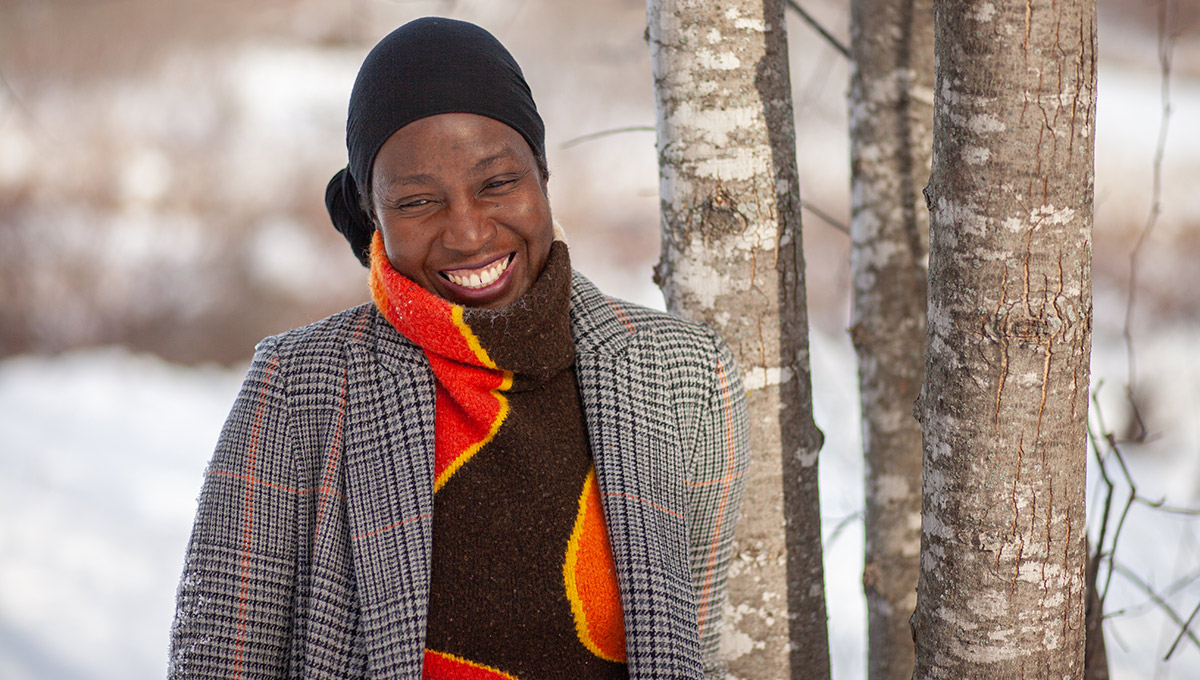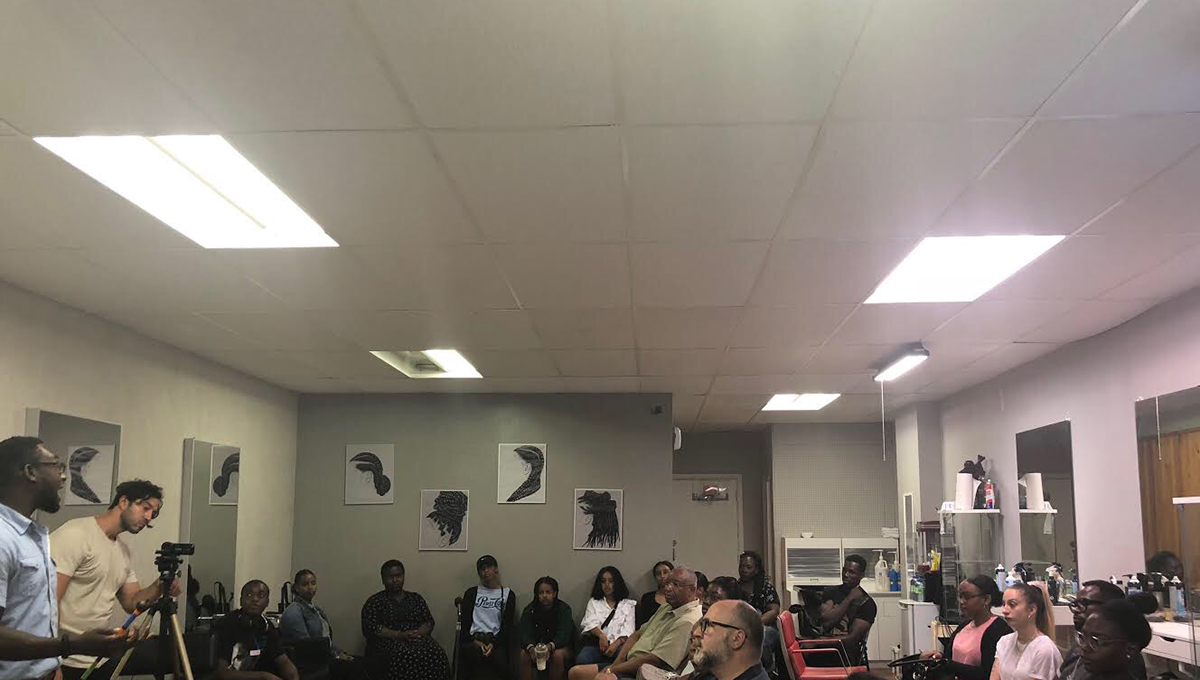By Joseph Mathieu
Photos by Fangliang Xu
One constant in Nadine Powell’s career has been a desire to see where history is directly linked to the present.
“Understanding history is important for me,” says the Carleton Sociology PhD candidate.
“Having insight about the past helps to better understand the present, as well as the future.”
Her current research melds history to diaspora studies and race as she explores how food has played a role in the lives of Jamaican migrants. Powell is researching how food can express and communicate different things, how it can comfort and organize people, and how it can resist ideologies and overcome difficulties.

Carleton Sociology PhD candidate Nadine Powell
During the African slave trade — which lasted for more than 200 years in Canada until it was abolished in 1834 — enslaved women would sometimes braid seeds into their hair in order to grow their own food in the lands where they were forced to work after they were violently removed from their homelands.
“Seeing these forms of ingenuity and strength, these amazing little acts of survival and identity, shows us how people were still persisting and resisting,” says Powell.
Powell is learning of 20th-century experiences of Jamaican contacts in Toronto, a major site for secondary migration within Canada, as well as Winnipeg, where she grew up. It’s her hope that her research will feed back to those communities.
Powell’s family moved from Jamaica to Manitoba and they enrolled her in elementary school. She went on to take a double major in Religious Studies and Conflict Resolution Studies at the University of Winnipeg, and completed bachelor’s and master’s degrees in Social Work at McGill University. She was intrigued by Carleton’s Migration and Diaspora Studies program and began her PhD in 2016.

A photo from the Barbershop Talks in Montréal. (Author provided)
She was a collaborator on the Barbershop Talks forum, where community members gathered to discuss and unpack ideas about Blackness and gender, and she continues to contribute through the School of Social Work’s Black History Committee.
“The ideas that get exchanged in those spaces, just like the ones we exchange while cooking meals, can be very profound,” she says.
“It’s no secret that living as a Black person means you’re always dealing with the reality and politics of difference.”
Black History Month was established in 1995 and first celebrated in February 1996. At the time, there wasn’t much that acknowledged respective Black history in Canada, and it was a big deal for many people. But as ideas have continued to develop and evolve, Black communities have been re-evaluating the month’s meaning and asking themselves whether it carries the necessary weight.
For Powell, living as a Black person means she is always experiencing — and embracing —her identity.
“It’s never limited to one month,” she says.
“Maybe we need to rethink what Black History Month means, so it can be a phrase that better captures the beauty, the complexity and the dilemmas that come with the experience.”
During Black History Month, Carleton University is celebrating the many achievements and contributions of our Black community members. Visit our Black History Month page through the month of February to read new stories about our staff, faculty, students and alumni.
Friday, February 26, 2021 in History, Sociology and Anthropology
Share: Twitter, Facebook



